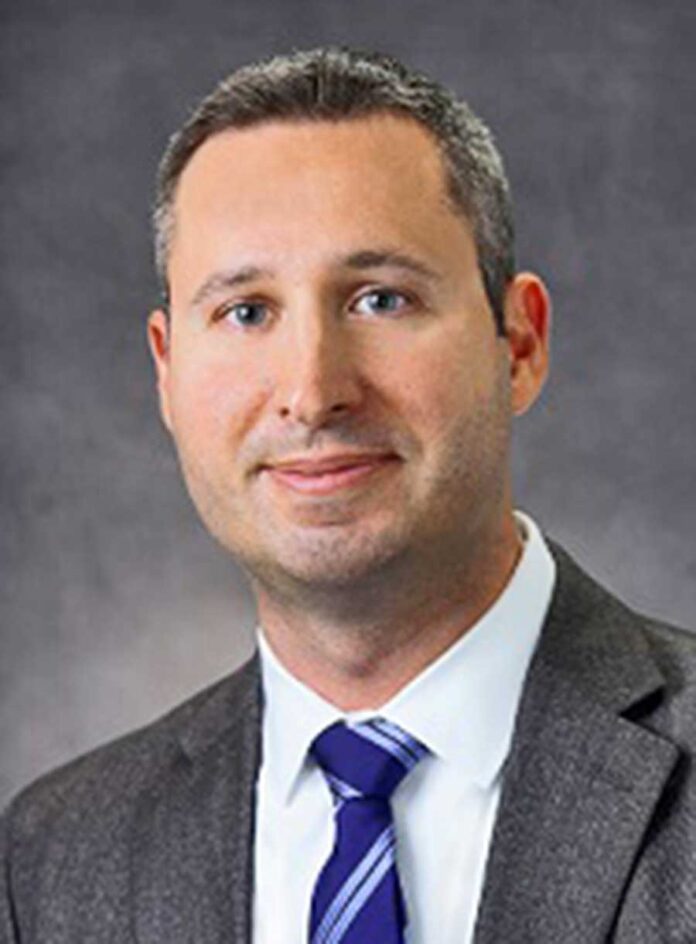
The need for LGBTQ-affirming healthcare has always existed, but lately patients and providers have been working to make it more accessible. LGBTQ people have different risk factors for disease than their heterosexual peers, and it is important for them and their healthcare providers to be able to speak openly about those risks. For example, the American Cancer Society has reported that gay and bisexual men have a higher risk for anal cancer and that lesbian and bisexual women have an increased risk for breast, cervical and ovarian cancer.
In southern New Jersey, Dr. Justin Schweitzer, the Medical Director for LGBTQ+ Health and Primary Care at Cooper Care Alliance, learned early in his medical career that many patients in the area were recommended to seek out care in Center City Philadelphia. The Mazzoni Center (and others) does offer excellent care for LGBTQ individuals. However, Schweitzer felt this could detract from ease of access. Not only could travel be an issue, but certain health insurance may not be readily transferable from NJ to PA.
He and Cooper Health are working to enhance and expand care offered to the LGBTQ community in southern New Jersey. Cooper already offers many services, such as gender-affirming hormone therapy, PrEP for HIV prevention, and chest masculinization or top surgery.
“We also plan to include more LGBTQ+ health topics into the Cooper Medical School of Rowan University curriculum,” Schweitzer said, “so that tomorrow’s doctors are more knowledgeable as well.”
Currently Schweitzer cares for about 1,500 patients with approximately 25% of them identifying as LGBTQ. His role has expanded to become a clinical resource for other physicians. He has set up lectures discussing “PrEP for HIV-prevention,” “Transgender Care 101,” and “Gender Affirming Hormone Therapy.”
“As an osteopathic family physician,” Schweitzer said, “I was trained with a holistic approach to primary care medicine; taking care of body, mind, and spirit.”
He was an early provider who discussed and prescribed PrEP, and counselled patients as to whether it was right for them based on sexual needs. The care centers he works with at Cooper focus on informed consent. If a person is over 18 and able to make their own decisions they don’t need the advice of other specialists to start most medications or certain therapies.
“We want to limit obstacles in the way of a patient’s healthcare needs,” he explained. Regarding PrEP, he is proud to report this too has become a family healthcare topic. “I have had some parents ask me about PrEP and it’s great that they are willing to advocate for their children and have conversations about sexual health and prevention with them!”
Schweitzer has been specializing in LGBTQ+affirmative care for the past decade. He also partners with the Early Intervention and Infectious Disease Program at Cooper University Health Care in Camden, NJ. They have worked with the community diagnosing and treating those who are HIV positive or at risk for infection since 1990. Camden sees a patient-base which may be disenfranchised from quality healthcare due to socio-economic disparities, education, or in the case of LGBTQ health and wellness: stigma.
Pamela Gorman, RN, ACRN administrative director for the Early Intervention and Infectious Disease department at Cooper Health in Camden (ACRN stands for HIV/AIDS Certified Registered Nurse), describes Schweitzer’s recent December 2020 appointment to medical director for LGBTQ+ Health and Primary care as an exciting moment for patients and faculty.
“We are committed to providing compassionate care, and strive to be culturally sensitive and promote a stigma-free environment for all persons,” Gorman said of her work which serves nearly 2000 patients with some 35% from the LGBTQ community. “Our services are available regardless of ability to pay and our case management teams work with clients to assure they are connected to social services and entitlement programs such as Medicaid.”
But, their work is not limited to HIV. They provide counseling and support for people going through opioid and other life-threatening addictions. They also have a team of counselors, psychologists, addiction specialists, and a psychiatrist with office hours on Fridays. Their work extends to transgender patients who may have questions about transgender health, gender-affirming hormons, and related surgeries as part of their transition journey.
Schweitzer confirms this aspect of his work is very rewarding to him as a physician, especially one who believes in a holistic approach to caring for patients. Transgender patients and individuals are often the most left behind due to stigma and transphobia, or not feeling a doctor will offer the best care for their needs.
“With gender-affirming hormone therapy, it’s been rewarding to watch patients have positive changes both mentally and physically. At Cooper, our mission statement is simple; to serve, to heal, to educate,” he said. “In respect to transgender care, I work to serve my colleagues to better understand the unique needs of their LGBTQ+ patients, I ‘heal’ my current patients by addressing their acute and chronic medical conditions, and I will be able to educate the physicians of tomorrow at Cooper Medical School of Rowan University to better care for our community.”